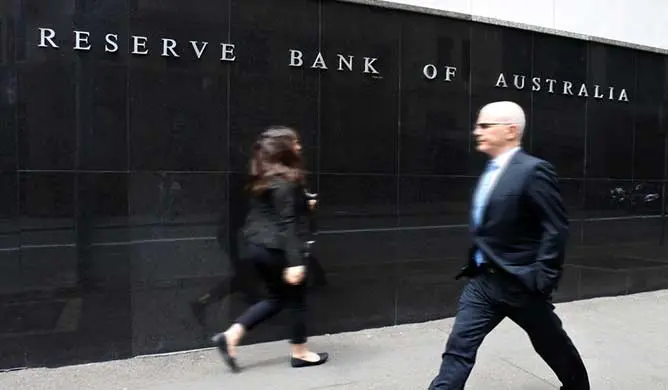Time to read : 3 Minutes
The Reserve Bank of Australia (RBA), is often misrepresented and misunderstood in the eyes of the Australian public. Two economists attempt to demystify the RBA's role and impact on the Australian economy.
Key points (TL;DR):
The RBA is instrumental in regulating Australia's economy.
The RBA has far-reaching influence, maintaining inflation stability and cost of living.
The central bank is not indifferent to public sentiment and the struggles of Aussie households.
Rate hikes could soon halt temporarily, while potential changes to its board structure and information provisions may take place.
Essentially, the RBA seeks to strike a balance among demographics and needs, with a mission to maintain low inflation and full employment.
Under the spotlight of escalating interest rates and sharp criticism directed at the outgoing governor, Philip Lowe, the RBA has been in the hot seat. Michele Bullock, the incoming governor, faces a huge challenge to soothe the sting of climbing interest rates on Aussie households.
So, what does the RBA do?
The RBA is responsible for establishing the interbank overnight cash rate target, which stands as the key driver of retail interest rates.
Since April 2022 we've seen a substantial leap from 0.1 per cent to 4.1 per cent in July 2023, coupled with the predicted rise of unemployment to 4.5 per cent by the end of 2024.
School of Banking and Finance at UNSW Business School Associate Professor Mark Humphrey says the RBA's primary role to ensure price stability.
It works diligently to ensure that inflation remains at equilibrium – neither too high nor too low, he adds.
"The RBA exerts influence over this via fiscal policy meetings, setting the interbank overnight cash rate and quantitative easing or tightening – thereby regulating the lending pulse of banks to households and businesses in our economy."
How do the RBA's actions assist the cost of living crisis?
"Initially, it might seem like RBA exacerbates the [cost-of-living] issue through higher interest rates," adds Humphrey-Jenner. "However, this is a strategic move to rein in inflation and moderate cost-of-living pressures.
"Conversely, this could have profound consequences leading to a spike in rents, more pressure on households to prove loan serviceability and possible funding strains on businesses."
What will the RBA do today?
Economists are split on whether the RBA will hike interest rates for the 13th time in less than 18 months, or leave them on hold.
Still, many Aussies are looking to the RBA to step up and stop bleeding household budgets. A hold may only offer reprieve for one more month. Dr Nalini Prasad from the UNSW School of Economics believes that, regardless of today's decision, the RBA may soon halt rate rises temporarily until it can assess the effects of previous increases.
Who is most affected by rate rises?
The biggest impact is on homeowners, says Prasad, who explains that when the RBA hikes its rates, mortgage interest rates also rise, leading to larger monthly repayments and a decrease in disposable income.
Does the RBA care about our struggles?
"One common misconception is that the bank is indifferent to the trials of the public," says Prasad. "In reality, the RBA strives to strike a balance amidst changing demographics and needs, with a fundamental objective to maintain low inflation and full employment."
"Similarly, it's a misconception that the RBA dictates property prices," says Humphrey-Jenner. "It should be acknowledged that property rates are a function of supply-demand dynamics – and inflation control is not the RBA's sole duty."
Does the RBA control inflation?
The RBA only controls monetary policy (ie: interest rates). The federal government controls fiscal policy (government spending).
"If the government spends profligately, the RBA must then struggle to undo the damage done by the government," says Humphrey-Jenner.
The Bottom Line
While the RBA navigates the challenging landscape of managing inflation, interest rates, and cost of living, its role is broad and complex.
Through its work and its influence, the RBA plays an instrumental role in shaping the future of Australia's economy.
But the federal government also has a hand in the nation's economic outcome, and there are rumblings the RBA may now be being 'scapegoated' for fixing past government spending policy.
Go deeper: How likely are we to see another rate rise in August?
Financial disclaimer
The information contained on this web page is of general nature only and has been prepared without taking into consideration your objectives, needs and financial situation. You should check with a financial professional before making any decisions. Any opinions expressed within an article are those of the author and do not specifically reflect the views of Compare Club Australia Pty Ltd.
